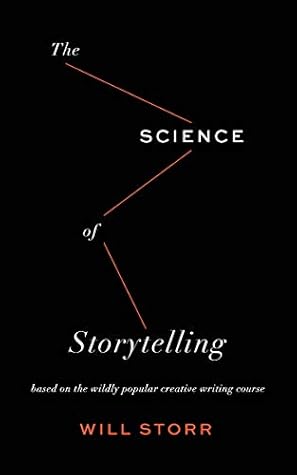More on this book
Community
Kindle Notes & Highlights
Change is endlessly fascinating to brains. ‘Almost all perception is based on the detection of change’
When you stub your toe and feel pain throbbing out of it, that, too, is an illusion. That pain is not in your toe, but in your brain.
One study concluded that, to make vivid scenes, three specific qualities of an object should be described, with the researcher’s examples including ‘a dark blue carpet’ and ‘an orange striped pencil.’
When we realise our car is about to crash, say, the brain needs to temporarily increase its ability to control the world. Its processing power surges and we become aware of more features in our environment, which has the effect of making time seem to slow down.
Too many books and films begin with characters that seem to be mere outlines: perfect, innocent human-shaped nothings, perhaps with a bolt-on quirk or two, waiting to be coloured in by the events of the plot. Far better to find ourselves waking up, on page one, startled and exhilarated to find ourselves inside a mind and a life that feels flawed, fascinating, specific and real.
For Westerners, reality is made up of individual pieces and parts. When threatening unexpected change strikes, we tend to reimpose control by going to war with those pieces and parts and trying to tame them. For Easterners, reality is a field of interconnected forces. When threatening unexpected change strikes, they’re more likely to reimpose control by attempting to understand how to bring those turbulent forces back into harmony so that they can all exist together. What they have in common is story’s deepest purpose. They are lessons in control.
The neuroscientist Professor Sarah Gimbel watched what happened when people in brain scanners were presented with evidence their strongly held political beliefs were wrong. ‘The response in the brain that we see is very similar to what would happen if, say, you were walking through the forest and came across a bear,’ she has said.
The problem of self-control, I’ve come to think, isn’t really one of willpower. It’s about being inhabited by many different people who have different goals and values, including one who’s determined to be healthy, and one who’s determined to be happy.
In many of our most successful stories, moral outrage is triggered in the early scenes. Watching a selfless character being treated selfishly is a drug of enchantment for the tribal brain. We almost can’t help but care.
The surprising discovery that’s been waiting for us, at the destination of our long journey into our evolutionary past, is that all story is gossip.
The ‘most frequently occurring and important theme’ of bestsellers was ‘human closeness and human connection’,


